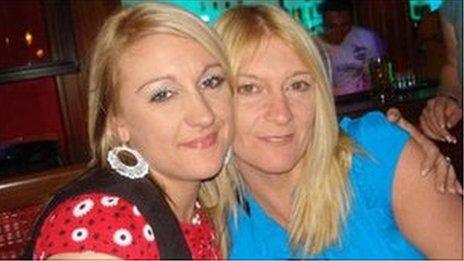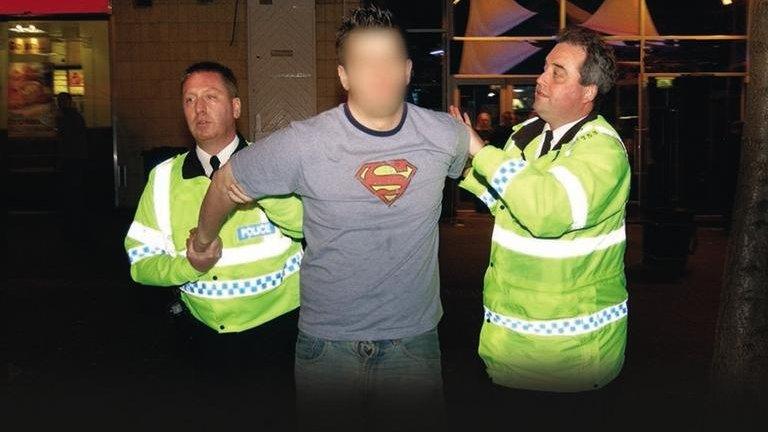Domestic violence law planned, says Labour's Yvette Cooper
- Published

Yvette Cooper will say the government "just doesn't take violence against women seriously"
New laws on domestic violence would be introduced by a Labour government to prevent abusive partners avoiding prosecution, the shadow home secretary has said.
Yvette Cooper says a commissioner would also be appointed by Labour to oversee "national standards" in such cases.
Ms Cooper says more offenders are now avoiding court action as "community resolutions" are instead being used.
Police have disputed the claim they are not taking violence seriously.
The Home Office, meanwhile, said the use of the resolutions - which can include apologies or compensation - for serious crimes was "not acceptable".
Community resolutions are used, external by police to resolve low-level or minor offences through "informal agreement between the parties involved", instead of through the court system.
They are aimed at first-time offenders and can be used where there has been an admission of guilt and after the victim's views have been taken into account.
Data compiled by Labour from 15 of the 43 police forces showed there were 3,305 uses of community resolutions for domestic violence in 2013 - up from 1,337 in 2009.
In a speech in Birmingham to mark Labour's summer campaign, Ms Cooper said the data is "deeply worrying" and suggests ministers are "turning their backs" on victims of domestic violence.
She also repeated Labour's promise to ban the use of the resolutions for domestic and sexual violence.
'Harder to escape'
Speaking earlier on BBC Radio 4's Today programme, Ms Cooper said the aim of Labour's planned legislation was to ensure police intervened in cases of domestic violence.
Ms Cooper said in her speech that community resolutions can be "very effective", but added that they should not "be used for violent offences, and especially not for domestic violence".
She also accused the government, saying it "just doesn't take violence against women seriously".
"For the police to simply take a violent abuser home to apologise risks making domestic violence worse and makes it even harder for victims to escape a cycle of abuse," she said.
Advice from the Association of Chief Police Officers (Acpo) suggests community resolutions are suitable for crimes such as criminal damage, minor theft and anti-social behaviour.
Assistant Chief Constable Garry Shewan from Greater Manchester Police, Acpo's lead on restorative justice, told Today community resolutions were given in less than 1% of cases categorised as domestic violence.
He added the method is "specifically attuned to low level domestic abuse particularly where victims want that course of action".
A Home Office spokeswoman said a review had already been conducted into the inappropriate use of community resolutions.
She also said every police force in England and Wales had been written to by Home Secretary Theresa May instructing them to produce a domestic violence action plan.
"It is not acceptable for the police to use out-of-court settlements for serious criminality and that is why the government is already reviewing how they are used," the spokeswoman said.
The Home Office is yet to respond to a consultation on the use of out-of-court disposals, which ended in January.
Sandra Horley, chief executive of national domestic violence charity Refuge, said: "These types of remedies may be effective for some crimes - but domestic violence is not one of them".
"When women make the extraordinarily brave step of reporting their partners to the police, they must feel confident that they have the full weight of the law behind them."
Hilary Fisher, of the charity Women's Aid, said: "Women tend not to call and ask for help until they've experienced violence for over five times, sometimes up to 30 times."
She said weak punishments would not deter these serial perpetrators who would think "if the police don't take it seriously why should I?"
- Published22 May 2014

- Published29 August 2013

- Published30 December 2013

- Published30 April 2013
